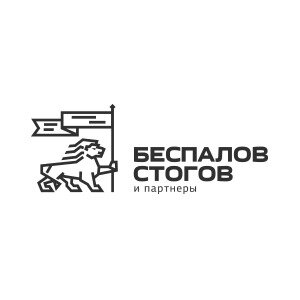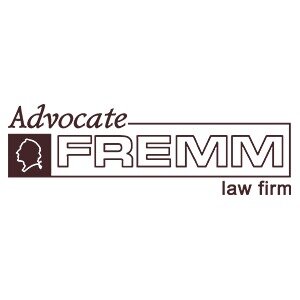Best Energy Regulatory Law Lawyers in St Petersburg
Share your needs with us, get contacted by law firms.
Free. Takes 2 min.
List of the best lawyers in St Petersburg, Russia
About Energy Regulatory Law in St Petersburg, Russia
Energy Regulatory Law in St Petersburg, Russia governs the production, distribution, and consumption of energy resources, including electricity, natural gas, oil, and renewable sources. This field of law is designed to manage the complex relationships between energy producers, suppliers, consumers, and government regulatory bodies. Legislation typically aims to ensure reliable and affordable energy supply, promote energy efficiency, protect the environment, and regulate tariffs and market competition. In St Petersburg, federal and regional laws together shape the legal landscape, making compliance an important consideration for both businesses and individuals.
Why You May Need a Lawyer
There are many circumstances where legal assistance in Energy Regulatory Law is beneficial. Businesses and individuals may encounter regulatory compliance issues when establishing or operating energy projects or facilities. Disputes over energy contracts, grid access, environmental standards, or tariffs can arise and require legal expertise. Changes in licensing, regulatory inspections, or government audits may call for professional guidance. Additionally, navigating interactions with federal and regional authorities, such as obtaining permits or resolving enforcement actions, is often complex. Having a lawyer ensures that your interests are protected and that you remain compliant with all applicable laws.
Local Laws Overview
St Petersburg is subject to both the federal legal framework of the Russian Federation and specific regional regulations. The key federal laws include the Law on Electric Power Industry, Law on Gas Supply, and environmental protection legislation. Regulatory oversight is mainly provided by the Federal Antimonopoly Service, the Ministry of Energy, and the Federal Service for Environmental, Technological and Nuclear Supervision. St Petersburg also enacts regional provisions, especially concerning urban energy planning, district heating, and public utilities. Tariff regulation is tightly controlled, with federal guidelines and regional adaptations. Compliance with energy efficiency and environmental standards is mandatory, with substantial penalties for violations.
Frequently Asked Questions
What is the general procedure for obtaining an energy license in St Petersburg?
Obtaining an energy license involves filing an application with the relevant authority, submitting required documentation, undergoing an inspection process, and awaiting approval. The specific steps may vary based on the type of energy activity involved, such as energy generation, distribution, or supply.
Who regulates energy tariffs in St Petersburg?
Energy tariffs in St Petersburg are regulated by both federal agencies and regional tariff authorities. The Federal Antimonopoly Service sets guidelines, while the St Petersburg Committee on Tariffs adjusts rates locally within the prescribed framework.
Can an individual or business generate their own energy?
Yes, both businesses and individuals can generate their own energy, subject to licensing, technical, and environmental requirements. There may be opportunities for connecting to the grid or participating in energy markets, depending on the capacity and type of energy produced.
What are the main environmental requirements for energy companies?
Energy companies must comply with federal environmental protection laws, including measures to reduce emissions, pollution control, waste management, and environmental impact assessments. Regional regulations in St Petersburg may set stricter standards for certain activities.
How are disputes between energy suppliers and consumers resolved?
Most disputes are initially handled through negotiations or contractual mechanisms. If unresolved, claims can be brought before local commercial courts or specialized regulatory bodies for arbitration or litigation.
Are there incentives for renewable energy projects?
Russian federal law provides some incentives for renewable energy, including preferential tariffs and support schemes. St Petersburg has additional programs aiming to encourage sustainable energy development and improve grid integration of renewables.
What are the consequences of operating without a proper energy license?
Operating without the required license can lead to significant penalties, including fines, suspension of activities, or even criminal liability for repeat or particularly severe violations.
Who ensures compliance with energy laws in St Petersburg?
Compliance is overseen by the Federal Antimonopoly Service, the Ministry of Energy, regional energy inspection authorities, and environmental regulators. Inspections and audits are conducted regularly or can be triggered by complaints.
Can foreign investors participate in the energy sector?
Yes, foreign investors may participate in the Russian energy sector, but there are restrictions on strategic assets and certain types of infrastructure. All investors must adhere to licensing, regulatory, and competition rules.
What is the process for connecting to the energy grid?
The process typically involves submitting an application to the local grid operator, technical evaluation, signing a connection agreement, and fulfilling technical requirements for metering and safety prior to commissioning.
Additional Resources
Several resources and organizations can help those needing legal advice in Energy Regulatory Law in St Petersburg:
- St Petersburg Committee on Tariffs
- Federal Antimonopoly Service (FAS) regional office
- Ministry of Energy of the Russian Federation
- Federal Service for Environmental, Technological, and Nuclear Supervision
- Local chambers of commerce and industry
- Professional associations of energy lawyers and consultants
- Public legal aid centers
Next Steps
If you require legal assistance in Energy Regulatory Law in St Petersburg, start by gathering all relevant documents and information related to your situation, including contracts, correspondence, and regulatory notices. Identify whether your question involves compliance, licensing, disputes, or investments. Consult with a local lawyer specializing in energy law and inquire about their experience with similar cases. Arrange an initial consultation to discuss your options and develop a clear action plan. Engaging a qualified legal professional ensures you navigate local and federal regulations effectively and protect your rights within the complex energy sector.
Lawzana helps you find the best lawyers and law firms in St Petersburg through a curated and pre-screened list of qualified legal professionals. Our platform offers rankings and detailed profiles of attorneys and law firms, allowing you to compare based on practice areas, including Energy Regulatory Law, experience, and client feedback.
Each profile includes a description of the firm's areas of practice, client reviews, team members and partners, year of establishment, spoken languages, office locations, contact information, social media presence, and any published articles or resources. Most firms on our platform speak English and are experienced in both local and international legal matters.
Get a quote from top-rated law firms in St Petersburg, Russia — quickly, securely, and without unnecessary hassle.
Disclaimer:
The information provided on this page is for general informational purposes only and does not constitute legal advice. While we strive to ensure the accuracy and relevance of the content, legal information may change over time, and interpretations of the law can vary. You should always consult with a qualified legal professional for advice specific to your situation.
We disclaim all liability for actions taken or not taken based on the content of this page. If you believe any information is incorrect or outdated, please contact us, and we will review and update it where appropriate.














